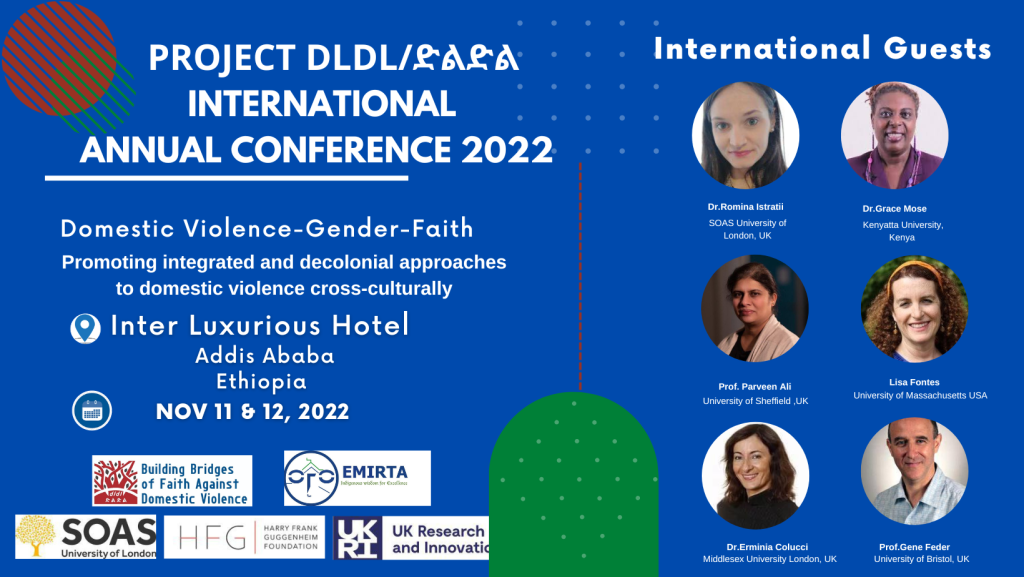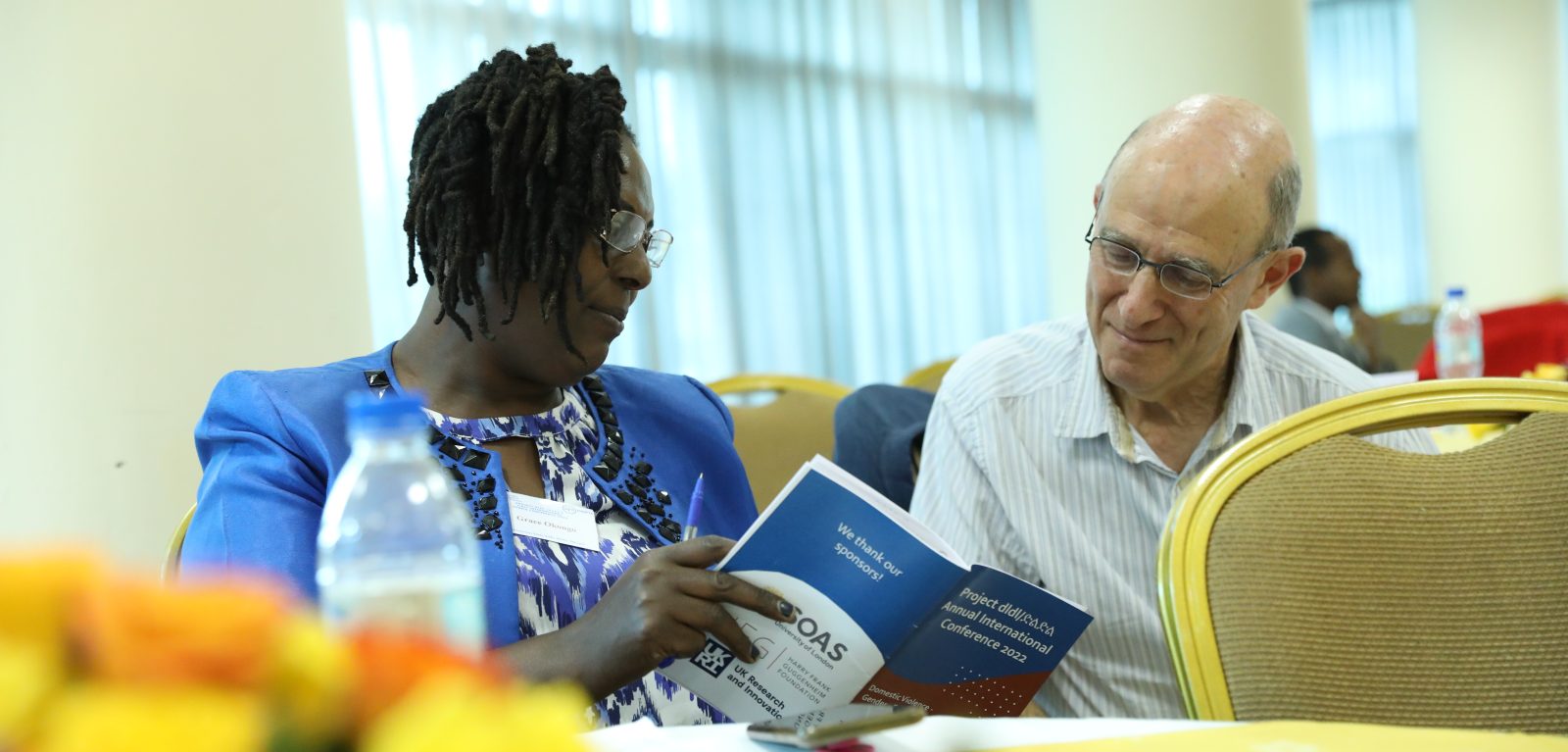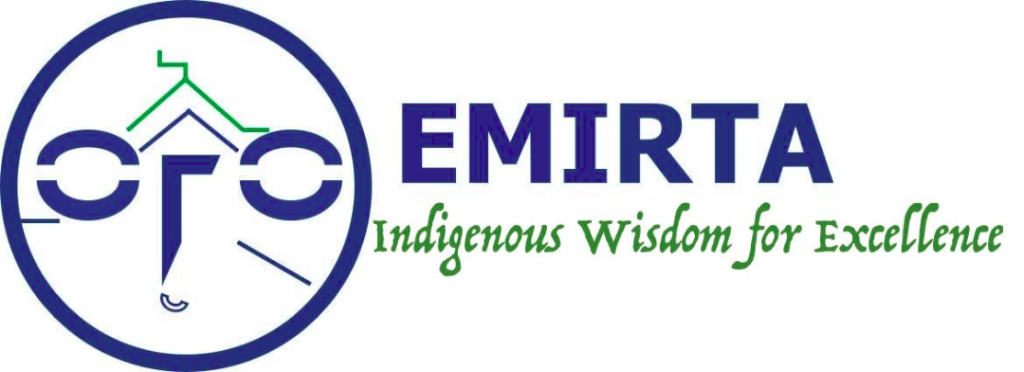This language is currently in review and will be available soon!

Project dldl/ድልድል is a project funded by UK Research and Innovation and is dedicated to the development and strengthening of religio-culturally sensitive domestic violence alleviation systems in East Africa and the UK.
Project dldl/ድልድል held its first Annual Conference on 11-12 November 2022 in Addis Ababa, Ethiopia with the option for UK speakers and audiences to join online. The Project dldl/ድልድል Annual Conference was co-organised with project partner EMIRTA/እምርታ Research, Training and Development Institute in Ethiopia.
The conference focused on the nexus ‘Domestic Violence – Gender – Faith’ and had three overall aims. The first aim was to promote a better integration of theological and religious perspectives in gender-sensitive work on domestic violence and abuse. The second aim was to facilitate a bridging of different theoretical frameworks and approaches to achieve a more integrated lens through which to appraise the issue of domestic violence and abuse and to identify appropriate responses by means of working collaboratively. The third aim of was to contribute to a diversification of knowledge production in the area of domestic violence and abuse and to achieve genuine knowledge sharing from the so-called Global South to the so-called Global North.

Over 100 physical and online participants attended during the two days of the annual conference. Many online speakers joined from the UK, Egypt, Australia and other countries. Among the physical presentations and keynote speeches, 14 were by or included Ethiopian speakers and 13 presentations were given by international presenters from the UK and other countries who submitted pre-recorded presentations to be broadcast at the conference venue. Additionally, five workshops were delivered by international specialists from the UK, US, Kenya, Pakistan and Italy, four of whom attended physically. The conference programme also included a film screening that showcased effectively how spiritual, cultural and secular responses to mental health can come together to inform both attitudes and responses to mental health issues in a village community in Ghana.
The brief Conference Programme can be downloaded as a PDF in table format.
The full Conference Programme that includes presentation abstracts and speakers’ bios can be downloaded in PDF in A5 format.
The links to the recordings of the presentations are included in the post-conference report below and are available directly through the project’s Vimeo account.
Welcome from the organisers: Project dldl/ድልድል and EMIRTA
Welcome from Keynote Speaker Mr Ato Yilikal, Commissioner at the Ethiopian Orthodox Tewahedo Development and Inter-Church Aid Commission (EOC DICAC)
Welcome from Keynote Speaker, Ms Mandy Marshall, Director for Gender Justice for the Anglican Communion, UK (recorded)
PANEL 1: PREVALENCE OF DOMESTIC VIOLENCE, RISK FACTORS AND AFFECTED GROUPS IN ETHIOPIA
“Survival analysis and associated factors of time to first intimate partner violence after marriage among ever-married women in Ethiopia”, Birye Dessalegn Mekonnen and Yibrie Azmeraw
“Trends, Demands, and challenges of protecting Domestic workers: lesson from selected places of Ethiopia”, Tirsit Sahledengil
“Prevalence of Child Abuse and Associated Factors in West Shewa Zone, Oromia Regional State, Ethiopia”, Abera Getachew
“Wife Beating: My Observation as Neighbour in Addis Ababa, Ethiopia”, Sisay Kinfe
“Vulnerability of Female Domestic Workers vis-à-vis Intermediate (Brokers) and Parents’ Related Factors: The Case of Hosanna Town”, Lombebo Tagesse
Refreshments
PANEL 2: SURVIVOR EXPERIENCES OF DOMESTIC VIOLENCE, FAITH AND IMPLICATIONS FOR SURVIVOR SUPPORT SERVICES INTERNATIONALLY
“Domestic Violence: The lived experiences of Bangladeshi Women in the UK”, Aysha Ahmed (virtual)
“Understanding Domestic Violence and Abuse in UK Muslim Communities: a Multiperspective IPA Approach”, Rahmanara Chowdhury (virtual)
“Honour-based violence in Life writing: Halima Bashar’s Tears of the Desert and Fadumo Korn’s Born in the Big Rains: A Memoir of Somalia and Survival in focus”, Solomon Girma
“Suicide and Domestic violence”, Erminia Colucci
“Supporting African Christian Women Who Have Experienced Intimate Partner Violence in England: Service Providers’ Perspective”, Pamella Shelley (virtual)
Lunch
PANEL 3: INDIGENOUS AND COMMUNITY-LED RESPONSES TO GENDER INEQUALITY AND GBV
“Leveraging Existing Social, Cultural, Linguistic and Religious Assets and Values to Promote Gender Equality in Ethiopia”, Mulugeta Seyoum, Tadesse A Zerfu, Rahel Kassa (conversation)
“Integration of Indigenous Women’s Customary Institutions in Fighting Against Gender-Based Violence among the Oromo Communities, Ethiopia”, Muluken Kassahun Amid
Refreshments
Workshop 1: Invisible Chains: From Domestic Violence to Coercive Control, Lisa Fontes (virtually)
Workshop 2: Visual methods for activist research, Erminia Colucci
Concluding remarks by organisers
Film screening of ‘NKABOM: A LITTLE MEDICINE, A LITTLE PRAYER’ (presented by Producer Dr Erminia Colluci)
PANEL 4: THEOLOGICAL AND PHILOSOPHICAL RESPONSES TO DOMESTIC VIOLENCE AND GENDER INJUSTICES IN FAITH COMMUNITIES
“Early Treatment of Q 4:34 within Tafsῑr”, Mahmoud Ali Gomaa Afifi (virtual)
“A Theological Critique of the Feminism Movement”, Selam Reta
“The Need for Inclusive Justice: Philosophical Appraisal on the Nature of Justice Addressing Intersectional Discriminations in Ethiopia”, Eyasu Barento
“The project dldl/ድልድል approach: Employing St John Chrysostom’s homilies on marriage, conjugal cohabitation and domestic violence to build Ethiopian Orthodox Tewahedo clergy’s preparedness to respond to domestic violence”, Romina Istratii and Henok Hailu (presented by Henok Hailu)
Refreshments
PANEL 5: THE ROLE OF RELIGIOUS MEDIATORS IN DOMESTIC VIOLENCE EXPERIENCES AND RESPONSES
“Domestic Violence (also named domestic Abuse or family violence) Focusing on Black African Families and the role religion plays in the African contexts”, Amma Anane-Agyei (virtual)
“Christianized traditional marriage counsellors in Zambia as unexplored gatekeepers for gender transformative approaches in GBV prevention?”, Benjamin Kalkum
“The EOTC-DICAC programme approach to GBV prevention and response”, Bantamlak Gelaw
PANEL 6: FAITH-BASED AND CULTURE-SENSITIVE INTERVENTIONS TO RESPONDING TO DOMESTIC VIOLENCE AND OTHER FORMS OF GBV/VAWG IN INTERNATIONAL COMMUNITIES
“Promoting a Unified Response to, and Prevention of Sexual and gender-based violence in Emergencies (PURPOSE) with Faith”, Zayid Douglas, Jacqueline Ogega and Dolphine Kwamboka
“Engaging Faith in Higher Education to Address Gender-Based Violence”, Punita Lumb and Savroop Shergill (virtual)
Sugira Muryango: A community-integrated approach to family violence reduction and ECD promotion in Rwanda”, Jess Littman, Gabi Phend, Stephanie Bazubagira Magali, Sarah K.G. Jensen, Vincent Sezibera, and Theresa S. Betancourt (virtual)
“Empowering Women and Girls, Transforming Communities, Promising and Best Practices to Address Gender Based Violence in Kenya: Reports from an Organizational Programme”, Grace Bonareri Mose
Lunch
Group activity to explore conference themes
Workshop 4: Evaluating domestic abuse programmes: choosing a research design, Gene Feder
Workshop 5: Incorporating evaluation when designing effective domestic violence prevention programmes, Parveen Ali
Refreshments
ROUNDTABLE
The roundtable discussion will bring prominent feminist and religious organisations, government officials and international specialists to explore a better integration pathway for religious, feminist and state resources to respond to domestic violence in Ethiopia and internationally. The roundtable will be recorded and disseminated via media outlets in Ethiopia and the project’s media platforms internationally.
Closing remarks by organisers
Media interviews
End of Conference


